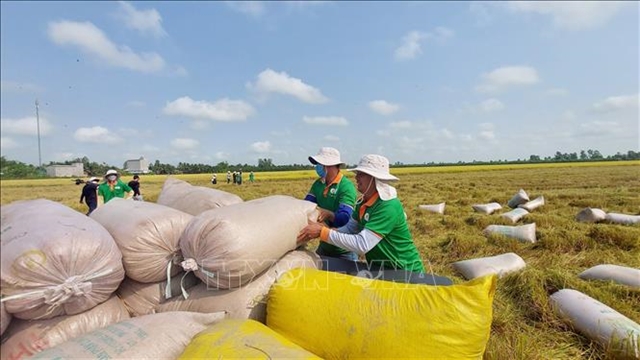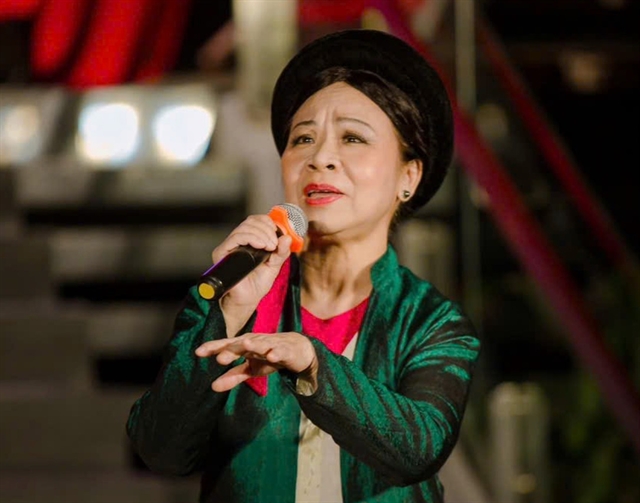 Inner Sanctum
Inner Sanctum

Nguyễn Thành Trung, CEO and founder of AXS, said that calling him a US dollar billionaire is completely incorrect, because the market capitalisation of the AXS token is completely different from the capitalisation of Sky Mavis.
Axie Infinity (AXS) is a game developed by Sky Mavis -- a game studio based in HCM City. This start-up has impressed with a total capitalisation of AXS (in game utility tokens) reaching around US$4.7 billion. Nguyễn Thành Trung, CEO and founder of AXS, has denied being a dollar billionaire as the market capitalisation of the AXS token is different to Sky Mavis. Trọng Đạt spoke with the young tech guru.
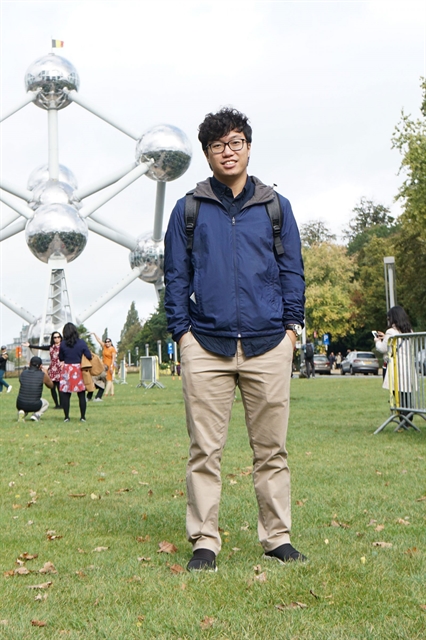
|
| Nguyễn Thành Trung, CEO and founder of Axie Infinity. Photo doanhnghiephoinhap.vn |
Inner Sanctum: How did the idea of a blockchain game like Axie Infinity come to you?
I used to dislike, even hate blockchain.
Before Axie Infinity was born, people often talked about Bitcoin price and Initial Coin Offerings. In my eyes at that time, not everyone needed capital to develop a blockchain project properly. On the contrary, there were those seeing ICOs as a product. This went against my work ethic as a technology engineer.
One fine day, I became curious when I heard about a game on the blockchain platform. When I tried it out, I realised that blockchain was not as bad as I had imagined, it was just a matter how to use the technology.
Then I decided to give it a try and Axie Infinity was born. As the game gradually gained a positive response from the community, I decided to quit my job to devote myself to the project.
Axie Infinity was the result of me and four co-founders, including Tú Đoàn -- another co-founder of Lozi, Aleksander Larsen from Norway, Jeffrey Zirlin from the US, and Andy Ho who was my colleague at my old company.
I and two foreign co-founders met through a blockchain game we played together. After that, we couldn't meet face-to-face, and worked online. However, that was the starting point of Axie Infinity at the end of 2017, early 2018.
Inner Sanctum: When starting the project, did you think Axie Infinity would develop to the billion-dollar level it is at now?
When we started developing Axie Infinity, we didn't think too much. At that time, we just wanted to do something in the spirit of a start-up. From the point of view of game enthusiasts, we wanted to make some changes in the industry.
We had more visions and information to develop the project. At that time, the desires and development goals of the project became clearer, thereby forming plans and strategies to bring about results.
Axie Infinity's recent growth has surpassed the group's expectations a bit.
Inner Sanctum: The growth model of enterprises often has a linear form. With technology companies, it is different due to the appearance of singularities. That's when the company's growth rate skyrockets. So where was singularity of Axie Infinity?
There were many singularities with the development of Axie Infinity. In particular, the transfer of the game's infrastructure to Ronin -- a blockchain developed by our team -- was an important milestone. This was the premise for the development of Axie Infinity later.
Billionaire Mark Cuban's investment in Axie Infinity was also a factor. However, in that investment round, not only Cuban but many reputable individuals and investment organisations helped Axie Infinity a lot; they have a reputation in the world but perhaps not much in Việt Nam.
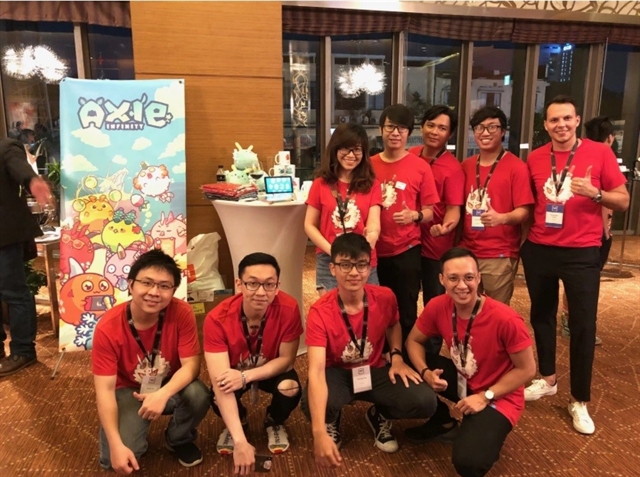
|
| The Axie Infinity development team. Photo courtesy of Sky Mavis |
Inner Sanctum: Start-ups often focus on developing the domestic market before considering going to the world. But Axie Infinity seemed to do the opposite. Why was that?
At the beginning of the project, the number of blockchain game players was not much. The total number of blockchain game players in the world at that time was probably only about 6,000-7,000 people. That number was too small to be divided by country and region.
Therefore, Axie Infinity turned to the international market to create something bigger. The large users also provide a source of feedback so the project can improve and continue to grow.
From a subjective view, the international market is easier to do in the blockchain industry, both in terms of player adoption as well as the legal and ecosystem support. In addition, the first players also played a very important role in laying the foundation for the entire community later. That's why Axie Infinity didn’t choose to develop the game in the Vietnamese market in the early stages.
Inner Sanctum: Can you tell us about the development team of Axie Infinity? How many members does Sky Mavis have?
Sky Mavis has about 40 employees, 80 per cent of whom are Vietnamese. Three out of five founders of the project are also Vietnamese.
The fact that the company has many Vietnamese people is an advantage because it brings cultural similarities. However, in the future, Axie Infinity will use more foreigners in positions related to creativity, while Vietnamese people are favoured for their outstanding technical skills.
We think that we are an international company. However, I am very happy that Axie Infinity is known to everyone as a Vietnamese technology company. I want to be able to put Vietnamese names on the world map.
Vietnamese people are very good at jobs that require care and meticulousness and have great potential in the field of technology. We just lack a bit of product thinking. Hopefully, Axie Infinity will contribute to improving that by developing a team of creative human resources in the country, in parallel with searching and recruiting in foreign markets.
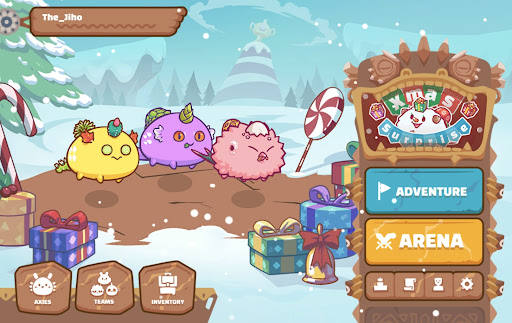
|
| Axie Infinity is one of the blockchain games with the highest revenue in the world. Photo startup.gov.vn |
Inner Sanctum: What do you think when everyone looks at the capitalisation of AXS and think you are a dollar billionaire? Are your assets really that much?
A lot of the information shared about Axie Infinity and myself is not very accurate. So I will try to explain it again so that everyone can understand correctly.
It is incorrect to say that I am a US dollar billionaire because the market capitalisation of the AXS token is completely different from that of Sky Mavis. The company owns a portion of the AXS, but the tokens are currently locked.
The Axie Infinity development team currently have a total of 21 per cent of the total AXS token supply. Of which, the company holds 17 per cent, the remaining four per cent of AXS tokens are used as rewards for the development team.
With a total capitalisation of $4.7 billion, the token holdings of both the company and the development team are currently worth around $1 billion. This amount of AXS tokens will be unlocked gradually over time to ensure the commitment of the company and people to the project.
However, this number is only the value of the token that the team are holding, not the full value of Sky Mavis. In addition to Axie Infinity, Sky Mavis prides itself on human resources, research and other products.
Many people congratulated me and thought that I was the contributor and majority owner of Axie Infinity. That's not right. Without a team of companions, Axie Infinity would not be able to build as it has now. This effort and contribution is of course proportional to the ownership level of everyone in the company.
My personal holding of shares is in a private enterprise. Axie Infinity has a long way to go. When the project comes to an exit (divestment) like an IPO (Initial Public Offering), the value of those shares is really meaningful.
Inner Sanctum: With the current achievements, and what is your next plan? Will you aim to become a tech billionaire or aim for something else?
Personally, my current goal is to be able to raise my children well, just ordinary things like that.
Being a US dollar billionaire or not is just a number. The fact that people talk so much about it makes me think too. However, I don't think I'm going to chase numerical goals.
Compared to personal needs, even if they increase, it won’t require too much money. Money is just a tool to create better things, to satisfy my own desire to do something to help people and society.
That's what I thought before and I still do now. However, I also feel a pressure of responsibility that is much greater than before. VNS




